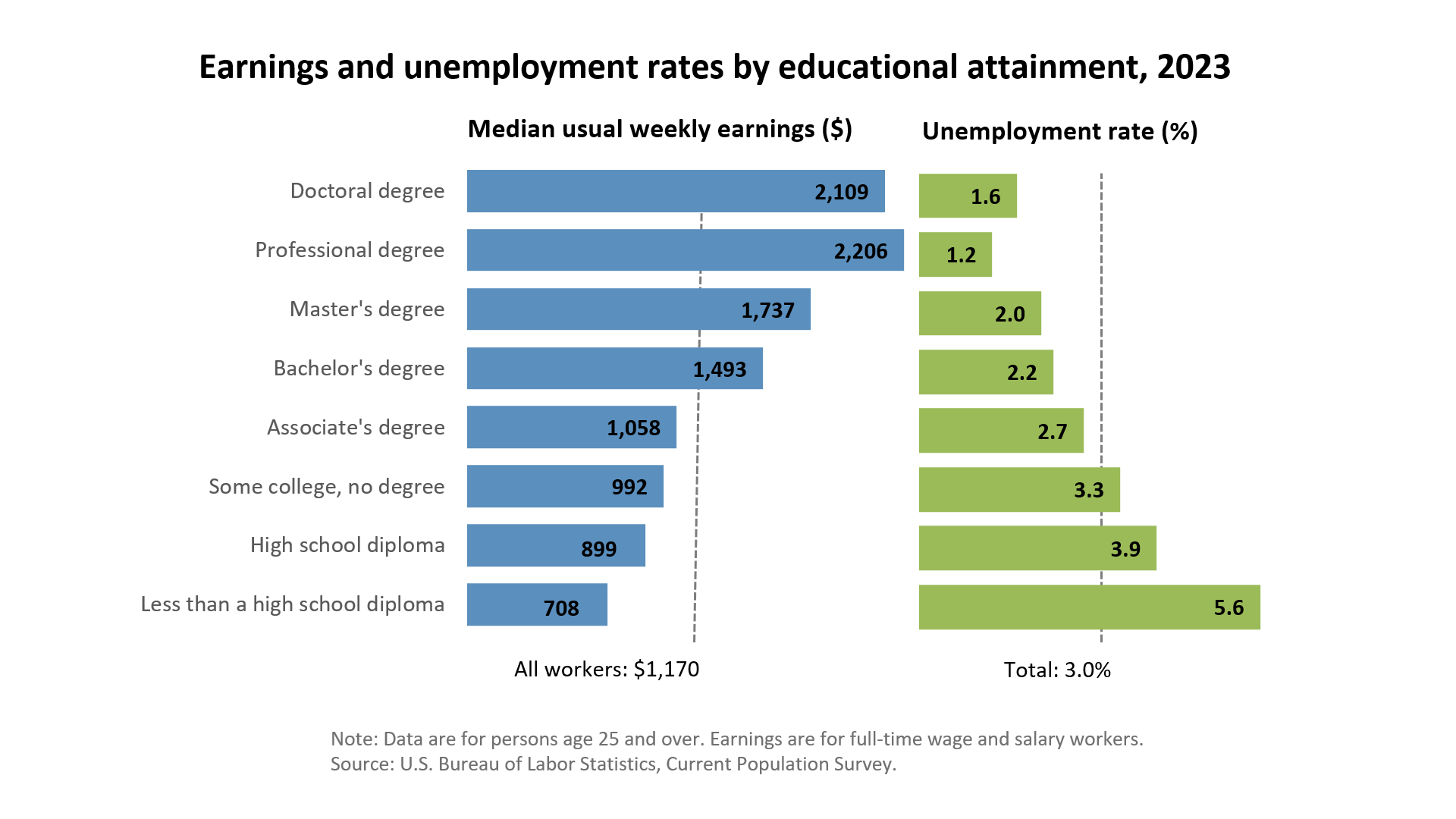Get Matched With Online Colleges
The University of the District of Columbia (UDC) is a public land-grant institution located in Washington, D.C. It is also a Historically Black University and a member of the Thurgood Marshall College Fund (TMCF), a non-profit organization providing support and representation for attending students. Notably, the University of the District of Columbia was established in 1851 and is the only public higher education school in the nation’s capital. In addition to awarding associate, bachelor’s, master’s, professional, and doctoral degrees, the institution also offers workforce and certificate programs.
Search All Programs
Overview of University of the District of Columbia (UDC)
The school is committed to a broad mission of education, research, and community service, providing a quality education and enriching the lives of students, neighbors, and stakeholders alike. The University of the District of Columbia also strives to produce lifelong learners who are transformative leaders in the workforce, government, non-profit sectors, and beyond. Their core values consist of excellence, collaboration, sustainability, innovation, and integrity.
The University of the District of Columbia enrolls more D.C. public high school graduate than any other university. As of the spring 2021 semester, total student enrollment was 3,661, including 1,704 undergraduate and 304 graduate students. There were also 1,448 students enrolled in the university’s community college (CC) and 205 enrolled in its law school. The majority of community college students attend part-time, while most undergraduate students attend classes full-time. The student body is also predominately female and made up of D.C. and metro-area residents.
General Information
| School Type | Public |
|---|---|
| Campus Setting | City: Large |
| Campus Housing | No |
| Student Faculty Ratio | 9:1 |
| Graduation Rate | 13% |
| Year Founded | 1851 |

Student Enrollment
Total Students4,199
3,828
371
Undergraduate Student
Male 1,531
Female 2,297
Graduate Student
Male 148
Female 223
Explore Map
Top Rankings For University of the District of Columbia
UDC Acceptance Rate and Admissions
APPLICATIONSNA
ACCEPTANCENA
Acceptance RateNA
Enrollment NA
| Admissions | |
|---|---|
| Application Fee | $35 |
| High School GPA | NA |
| High School Rank | NA |
| High School Transcripts | NA |
| College Prep Courses | NA |
| Recommendations | NA |
| SAT/ACT | NA |
| TOEFL (Test of English as a Foreign Language) | NA |
| Application Deadline | Rolling |
| Common Application Accepted | No |
UDC Tuition Cost & Financial Aid
At the University of the District of Columbia, the average cost of attendance varies depending on enrollment type and residency. It’s important to note that those attending the community college have different tuition and fees than undergraduate students. Residents, metro-area residents, and non-residents are also charged at varying rates. Further, undergraduate tuition and fees rates for engineering students and graduate students are also different.
The estimated tuition and fees for undergraduate residents attending the University of the District of Columbia fall 2020, spring 2021, or summer 2021 was $324 per credit hour plus an additional $430 fee. Undergraduates in the metro-area were charged $374 per credit hour, while undergraduate non-residents were charged $680 per credit hour. Both were also responsible for the $430 fee. Rates for graduate students were $513 for residents, $580 for metro-area residents, and $986 for non-residents. The tuition and fees do not include the cost of housing, living expenses, books, and supplies.
The University of the District of Columbia is committed to helping students bridge the gap between their personal resources and the cost of attending school. The institution offers financial aid in the form of grants, work-study, loans, and scholarship. Students can apply for most aid by completing the Free Application for Federal Student Aid (FAFSA). Approximately 87% of full-time beginning undergraduate students receive some form of financial aid. Most are awarded grants or scholarship, but 36% of students still need loans to cover the associated expenses.
| Average net price | 2018-2019 |
|---|---|
| Net Price | $15,886 |
| Average Total Aid | $8,625 |
| Students Receiving Financial Aid | 85% |
| Room & Board | $16,781 |
Sticker Price
- Tuition In-State - $6,020
- Tuition Out-of-State - $12,704
- Books and Supplies - $1,280
- Room & Board - $16,781
- Other - $5,004
Academics
The University of the District of Columbia offers over 81 degree programs that span over a wide range of education levels and interests. Students may pursue associate’s, bachelor’s, master’s, law, and doctoral degrees, as well as enroll in non-degree programs.
The university is comprised of the following academic divisions:
- Community College
- School of Engineering and Applied Sciences
- School of Business and Public Administration
- College of Arts and Sciences
- College of Agriculture
- Urban Sustainability and Environmental Sciences
- David A. Clarke School of Law
The top six associate degree programs are:
- Education (AA)
- Nursing (AAS)
- Liberal Studies (AA)
- Business Administration (AS)
- Liberal Studies (AS)
- Law Enforcement
The top five undergraduate majors are:
- Business Management
- Biology (BS)
- Computer Science
- Psychology
- Political Science
The student-faculty ratio is 9:1, which means that students generally have plenty of opportunities to interact with instructors one-on-one. Approximately 217 full-time and 432 part-time undergraduate faculty members are employed, less than 20 of whom focus solely on research and public service. There are also 47 graduate assistants providing instructional and research support.
Retention rates measure the percentage of first-time students seeking bachelor’s degrees who choose to return to the institution to continue their studies for a second semester. The University of the District of Columbia has a retention rate of 68% for full-time students (above the national average) and 39% for part-time students. This indicates that the majority of full-time students enrolled are pleased with their experiences.
The University of the District of Columbia is accredited by the Middle States Commission on Higher Education, which is one of six regionally accreditation agencies recognized by the United States Secretary of Education and the Council for Higher Education Accreditation.
Retention
Rate
4 year
Graduation
Rate
6 year
Graduation
Rate
Student Population Total
Student Population 4,199
3,828
371
Most Popular Programs & Majors
(# of Diplomas Awarded by Subject)
| All Business Majors | 82 Total Graduates / 22% |
|---|---|
| Business Administration and Management, General | 55 Graduates |
| Accounting | 23 Graduates |
| Finance, General | 4 Graduates |
| All Computer Information Science Majors | 45 Total Graduates / 12% |
| Computer Science | 26 Graduates |
| Information Technology | 19 Graduates |
| All Engineering Majors | 39 Total Graduates / 10% |
| Civil Engineering, General | 22 Graduates |
| Mechanical Engineering | 13 Graduates |
| Bioengineering and Biomedical Engineering | 4 Graduates |
| All Social Sciences Majors | 37 Total Graduates / 10% |
| Political Science and Government, General | 27 Graduates |
| Urban Studies/Affairs | 10 Graduates |
| All Family and Consumer Sciences/Human Sciences Majors | 29 Total Graduates / 8% |
| Human Development and Family Studies, General | 29 Graduates |
| All Other Diplomas | 38% |
Outcome & Salary
The University of the District of Columbia graduation outcomes and employment rates greatly upon the program selected. Graduates from the College of speech-language pathology program, for example, had 100% PRAXIS pass rate, as well as 100% employment placement in the profession since 2017. The Office of Career Services is dedicated to preparing undergraduate and graduate students, as well as alumni, for career success through career planning, career readiness, and career opportunities services by partnering with various employers/recruiters in the area.
| Graduates Salary | |
|---|---|
| College Grads Early Career Salary | $46,100 |
| College Grads Average Salary | $64,358 |
| College Grads Mid Career Salary | $67,300 |
| Return on Investment (ROI) | |
|---|---|
| 10 Year Salary Earnings Potential | $643,580 |
| 20 Year Salary Earnings Potential | $1,316,580 |
| Cost of Education (Net Price) 4 Year | $63,544 |
| 10 Year Projected ROI | $580,036 |
| 20 Year Projected ROI | $1,253,036 |
| No College Education Salary Comparison | |
|---|---|
| National Average Salary | $38,792 |
| 10 Year Projected Income | $387,920 |
| 20 Year Projected Income | $775,840 |

Photos & Videos
Related Top College Resources





